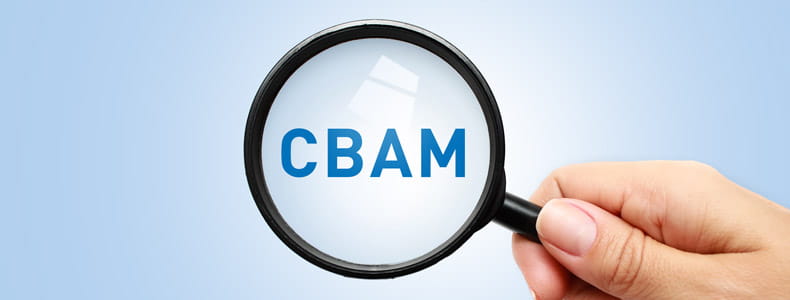


The Carbon Border Adjustment Mechanism (CBAM) is a tool implemented by the European Union (EU) to address climate change. With the implementation of this mechanism, a tariff on carbon-intensive products will be imposed, including those containing steel, iron, and aluminum, imported to the EU, considering products´carbon footprint as well as local taxes already applied in the country of origin.

The CBAM initially applies to imports of certain goods and selected precursors whose production is carbon intensive and at the most significant risk of carbon leakage: cement, iron and steel, aluminum, fertilizers, electricity, and hydrogen. Finally, fastener products were also included in this classification.
EU importers currently have to report detailed information to the European Commission each quarter of the year on the emissions of the fasteners imported in that quarter. The data they must report includes data regarding the manufacture of the fastener itself and the manufacture of the precursors used to manufacture the fasteners.
Starting from Q3 of this year 2024, in this “Transitional Phase”, all importers of goods to the European Union (EU), that fall under the CBAM regulation, must provide a “report on detailed information” of the affected goods. This report needs to be submitted quarterly.
The relevant data (volume of imported fasteners per tariff number and per supplier, direct and indirect source stream emissions in tons CO2 per ton goods per tariff number per supplier) must be determined and provided by the company manufacturing the fasteners outside the EU (“installation operator”) and be reported to the EU importers to which they sell those products (Bossard).
EFDA (European Fastener Distributor Association) has provided its members, the importers of fasteners in the EU, with a template that they can use to obtain the relevant data from their suppliers.
Installation operators and other suppliers must enter the relevant data for each quarter of a year into the template and submit the report to the importing party (Bossard).
The template contains guidance helping the installation operators and other suppliers to enter the data correctly into the template.

EU importers of goods covered by CBAM will register with national authorities where they can also buy CBAM certificates. The price of the certificates will be calculated depending on the weekly average auction price of EU ETS allowances expressed in €/tonne of CO2 emitted.

EU importers will declare the emissions embedded in their imports and surrender the corresponding number of certificates each year.

If importers can prove that a carbon price has already been paid during the production of the imported goods, the corresponding amount can be deducted.
EFDA, the European Fastener Distributor Association, has prepared a guideline and template for the data procurement form fastener supplier. This document contains all important information and details that are relevant to the completion of the emission report.
Please follow the detailed guidance in the EFDA Guide.
You can also watch our short video guidance:
- First video is about the EFDA template in general and how to input already calculated data.
- Second video is how to calculate data using EFDA template
Reporting of required data will be possible by Bossard’s Supplier Portal, either by directly inputting or by uploading the completed EFDA template.
Bossard is setting up this system and will inform the suppliers soon with additional information.
EFDA has provided its members, the importers of fasteners in the EU, with a template that they can use to obtain the relevant data from their suppliers. The template is a simplified version of the EU communication template's final sheet, "Summary Communication." It includes a guidance helping the installation operators and other suppliers to enter the data correctly into the template.
If you sell to Bossard different items under the same 8-digit CN code (different sizes, coatings, etc.), report them under the one CN code with averaged figures until further notice. The reason for this is that we at Bossard, together with other companies in the EFDA, have decided to take a simpler approach to make things easier for all parties. However, this will change by 2026 when the differentiation between the same CN codes will be desirable and will be a big customer advantage in the future.
Starting in 2026, supplier data will be collected annually. Additionally, EU importers (Bossard) will need to purchase CBAM certificates based on reported emissions, making differentiation between products (e.g. different forming machines, surface coatings/platings, with/without heat treatment) with the same CN codes advantageous. This differentiation should result in lower emissions and offer a significant customer advantage.
CBAM is EU legislation and is mandatory for all EU importers of affected goods. Failure to comply will result in legal and financial consequences for EU importers (Bossard). This means that if suppliers are unable to provide the requested data, there is a possibility that future business will be terminated.
The deadline for providing the requested data to Bossard for Q3 (July, August, and September) 2024 is the end of September 2024. This schedule will apply to every subsequent quarter as well. Bossard will contact you with further guidance beginning of September 2024.